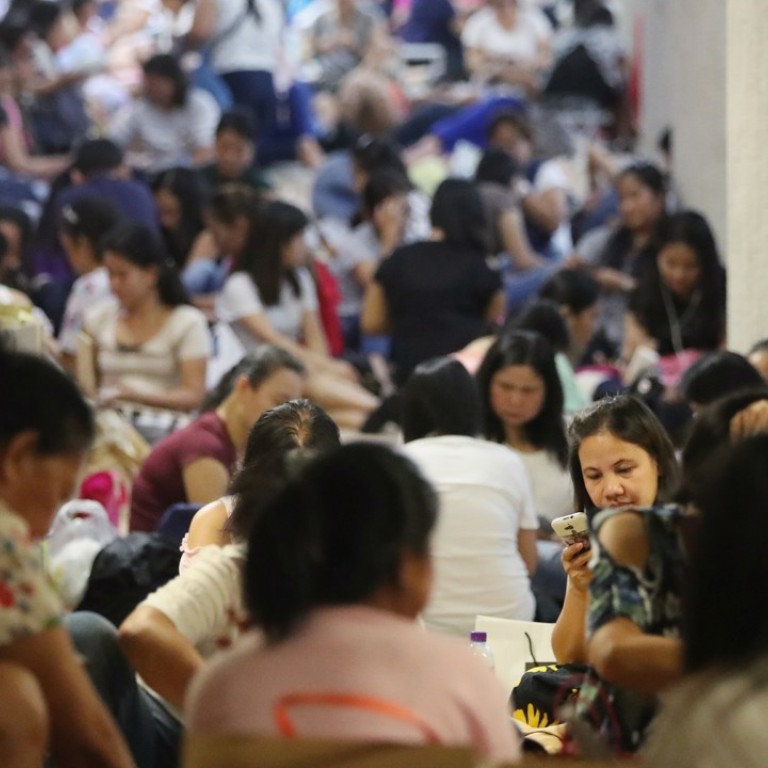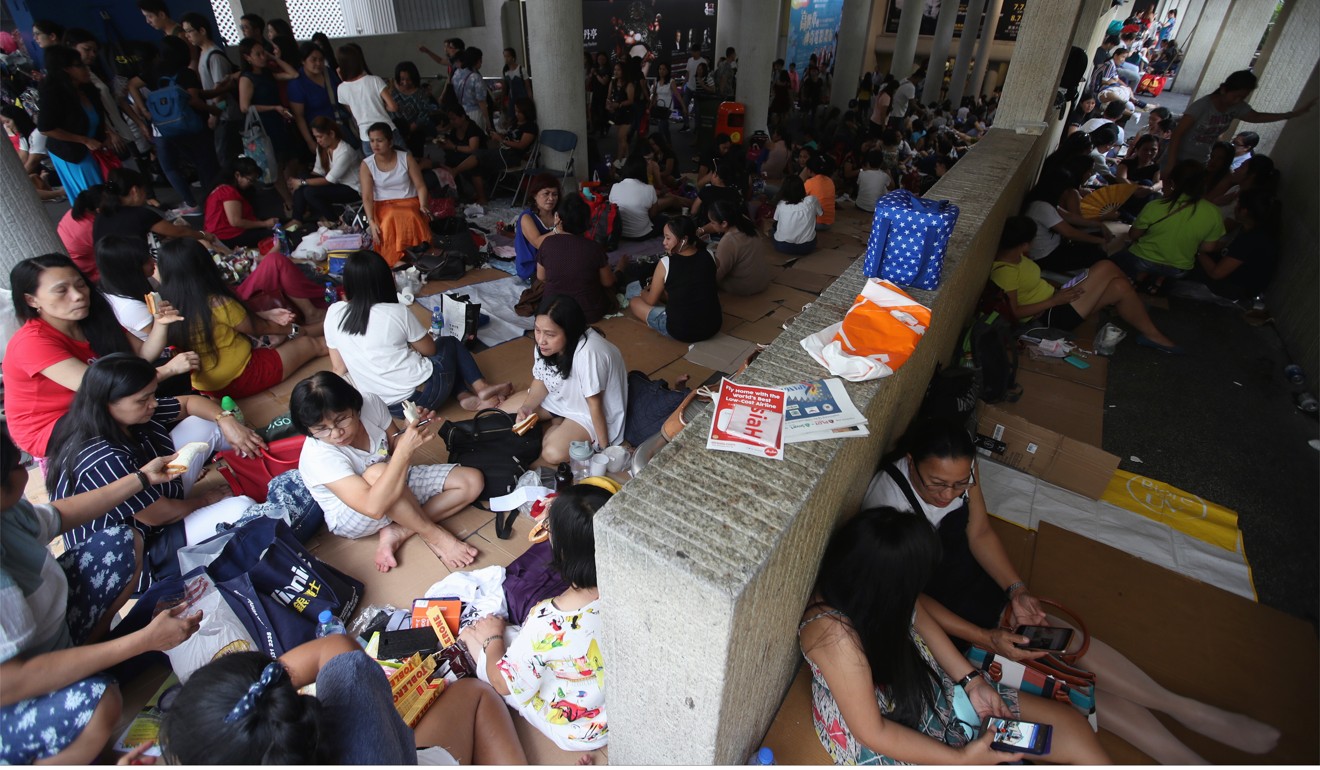
HK$110 rise in minimum wage for Hong Kong’s foreign domestic workers – an increase of 2.5 per cent
New monthly rate of HK$4,520 to take effect from Saturday
The minimum wage for Hong Kong’s 380,000 foreign domestic workers will be raised to HK$4,520 (US$578) per month from Saturday, the government has said.
The new rate is an increase of HK$110, or 2.5 per cent.
Officials also announced on Friday that the minimum food allowance would be bumped up HK$22 to HK$1,075 per month – an increase of 2.1 per cent – for workers whose employers chose not to provide free food.
The new rates will apply to all contracts signed on or after Saturday.
An employers’ group called the increase “acceptable”, but migrant worker representatives labelled it a “slave wage increase” and said the government was relying too heavily on domestic workers to provide elderly care.

Contracts signed before Saturday at the existing minimum wage of HK$4,410 per month will only be processed by the city’s Immigration Department if they reach the authority on or before October 26.
The old food allowance of HK$1,053 will also apply if these contracts are submitted before that date.
Online blacklist of rogue Hong Kong job agencies to help domestic workers
The wage law was first established in October 2016 with a level of HK$4,310 and a minimum food allowance of HK$1,037. The rates have since been reviewed annually – usually in September or October.
A government spokesman on Friday said the decision had taken into account the city’s economic and labour market conditions over the past year, its near-term economic outlook, affordability for employers and the interests of domestic workers.
The pay rise came as a survey showed two in every five foreign domestic workers in the city were taking care of elderly Hongkongers and not getting enough sleep or personal time. Some were effectively on duty 24 hours a day, according to findings from the Mission for Migrant Workers.
The organisation on Friday released the results from the survey of 1,505 helpers and focus groups. It called for stricter employment regulations to ensure caregivers got adequate rest, sleep and meal breaks.
Where domestic helpers get paid the most and least in Hong Kong, and employers’ growing generosity
About 90 per cent of those who took care of the elderly also had to look after children and do household chores.
“They said their workload was very heavy, especially if there were children in the household as well,” said Johannie Tong Hiu-yan, the mission’s community relations officer and lead researcher.
General manager Cynthia Tellez said the government had to do more on elderly care and not just place the burden on domestic helpers.
“Officials think they are taking on the responsibility by hiring more migrant workers,” she said. “But they are just passing on that responsibility to families of the elderly. The government has to have a programme to respond to the needs of elderly Hongkongers.”
Fighting for the right to stay: for children born in Hong Kong to domestic workers, it’s an uphill battle to get permanent residency
Legislator Fernando Cheung Chiu-hung said: “I feel shame that we are putting the responsibility for a lot of care for the elderly, young and chronically ill on foreign domestic helpers. We are putting a lot of responsibility on these workers in a rather irresponsible manner.”
Secretary for Labour and Welfare Dr Law Chi-kwong said an ageing population meant demand for foreign domestic workers would grow and the city would need 600,000 in the next three decades. An additional 240,000 helpers would be needed just to take care of the elderly, Law said.
Betty Yung Ma Shan-yee, chairwoman of the 3,000-member Employers of Domestic Helpers Association, said the wage increments were “acceptable”. However, most employers’ groups invited to negotiations with workers and the Labour Department wanted the government to freeze the rate, she said.
“For many retired employers or those whose monthly household income just reaches HK$16,000, the minimum wage and food allowance have actually been quite a financial burden,” Yung said.
Hong Kong law stipulates a family must have a monthly income of at least HK$16,000 to be eligible to employ a foreign domestic helper.
“If the minimum level keeps rising, employment opportunities for both domestic helpers and the professional women they serve will diminish,” Yung said. “When the cost is too high, the employer might rather give up her job to take care of the family.”
Migrant workers hit out at what they called a “slave wage increase”.
Dolores Balladares-Pelaez, spokeswoman for the Asian Migrants Coordinating Body, said the government did not treat the domestic helper salary as a “working wage”.
“It is really a slave wage. Our demand is a living wage, which should be HK$5,500,” she said.
The body had submitted a study to the government showing why pay should be raised to HK$5,500, she added.
“They pretended to have a consultation on the issue but essentially they are firm about this slave wage increase.”


